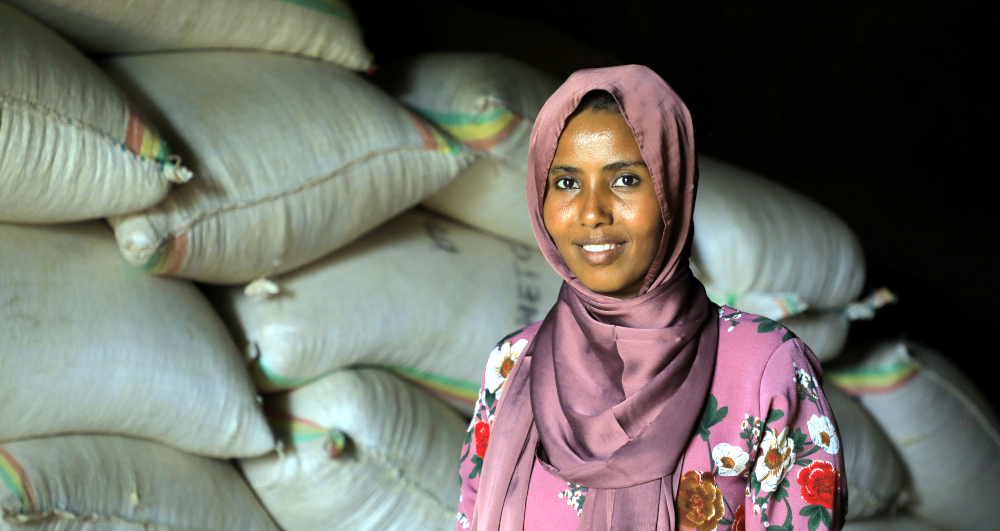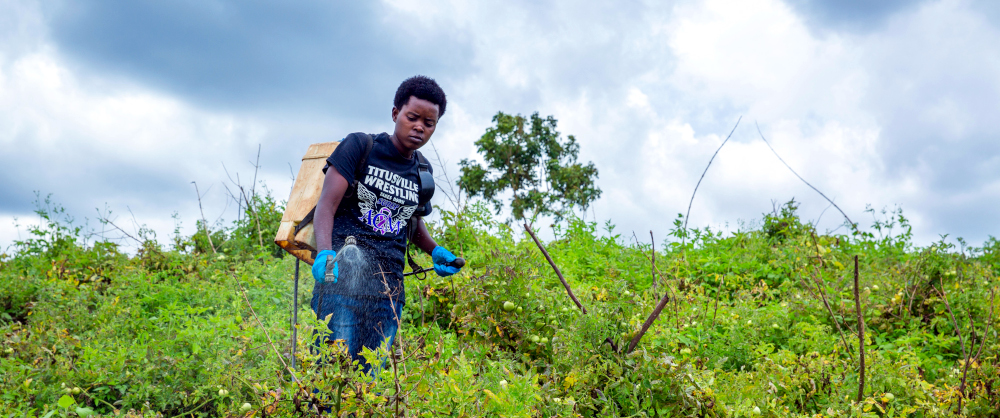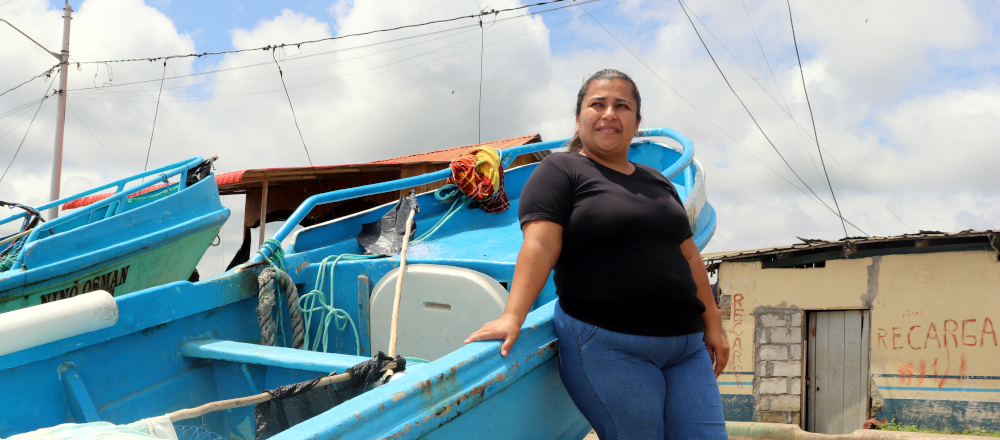Here, Shanna Marzilli — President & CEO of Plan International USA — outlines
three key areas that every skills-training program should incorporate to build a
better, more equal, future working world.
What future working world do we want for girls and women?
This is something I think a lot about, both as the mother of three daughters and
as the CEO of Plan International USA — a children’s
rights and girls’ equality nonprofit — and it’s what we’re asking our supporters
this year for International Women’s
Day (March 8).
I hope that my daughters get to pursue a career of their choosing, regardless of
gender stereotypes. I hope that they get to work in an environment where they
feel safe to speak up. I hope that the future working world is free of
discrimination and inequality.
So, how do we chart a course to making those dreams a reality? One way we
address this at Plan is through our programs in over 80
countries — including an
emphasis on skills training. We have more than 85 years of experience
implementing projects in partnership with girls themselves in local communities
around the world. And we've learned a lot.
The role of art in climate, sustainability and regeneration discourse
Benjamin Von Wong’s activist artistry transcends mere visual appeal — underlining the essential role of art in climate, sustainability and regeneration discourse. Join us as he explores the incredible potential of art as cultural commentary in raising awareness, and taking our shared behavioral and cultural pursuits to the next level — Wed, May 8, at Brand-Led Culture Change.
We want to share our experience so that you can learn from it. That’s why we’re
sharing these three key areas that every skills-training program should
incorporate to build a better, more equal working world in the future — for
girls, and for everyone.
1. Start with girls at the center
Who knows more about customer experience than your own customers? Designing
solutions for the end user, also known as human-centered design, is one of the
best ways to ensure your programs are efficient and fit for purpose.
Here’s an example of how Plan has seen success using a human-centered approach
to program design. In Ethiopia,
we partnered with the US government and a global corporation to provide skilled
labor to one of the country’s industrial parks. A top industry in these parks is
textile manufacturing, where the workforce is 94 percent female and 77 percent
of workers are at peak reproductive age of 18-24 years.
 In 2023, Plan reached over 600,000 people through programming on skills and
decent work, including Fatima. She is part of a Plan savings group set up to
strengthen women’s economic security. © Plan International
In 2023, Plan reached over 600,000 people through programming on skills and
decent work, including Fatima. She is part of a Plan savings group set up to
strengthen women’s economic security. © Plan International
Many employees had relocated in order to take advantage of the employment
opportunity; but workers were facing significant barriers, due to the nature of
work in the parks. Away from their traditional community support systems and
pursuing an untraditional career path, working mothers were struggling to
balance caregiving responsibilities and their employment. As a result, they were
dropping out of formal employment at high rates, or failing to advance in their
roles. Industrial parks began underperforming due in part to recruitment
challenges, high rates of turnover and reduced productivity.
In 2020, Plan International and its partners piloted a sustainability-focused,
community-based childcare model to address the needs of women working for their
suppliers in the Hawassa Industrial
Park.
The resultant model is customized to suit the needs of an industrial park
workforce, including scheduling service hours to match employment shifts and
offering programming to help working mothers navigate biased gender norms within
their families.
Now, the Hawassa Industrial Park is home to childcare centers that support over
200 children every year. Workers have reported lower absenteeism from work,
improved productivity and increased participation in work — leading to increases
in pay. Designing a human-centered program that addresses women’s unique needs
benefited everyone — from workers to families to managers.
Plan’s signature, human-centered approach to program design is called
GirlEngage:
Instead of treating girls as passive participants or beneficiaries in our work,
this approach involves girls as true partners — helping to design and implement
the programs that aim to improve their lives.
2. Train for a more sustainable future
When we asked our network of young leaders what they would like to see in the
future, environmental issues were top of mind.
“Climate change is not just an issue in Nepal, but a global concern,” says
Shikha, a Plan youth advocate. “We need to think about how to create space
for eco-entrepreneurship, sustainable agriculture and involve women in green
businesses.”
Plan programs around the world are providing training today to make the world
Shikha describes a reality tomorrow. For instance, “The Future Is Green!
Promoting Youth Agri-preneurship in
Rwanda”
project aims to economically integrate rural youth, especially young women, into
the world of agriculture.
Through hands-on training, participants gain valuable skills based on the
adaptation of modern agriculture techniques such as the application of
fertilizers and utilization of irrigation, among other things. Additionally,
young women receive training in value chain and labor market analyses — as well
as safeguarding and the prevention of sexual harassment, exploitation and abuse
— to pave the way for a brighter future.
 Alice has become well known in her area of Rwanda as a successful vegetable
farmer. She says much of her knowledge and entrepreneurial expertise came from
joining a green skills project run by Plan International. © Plan International
Alice has become well known in her area of Rwanda as a successful vegetable
farmer. She says much of her knowledge and entrepreneurial expertise came from
joining a green skills project run by Plan International. © Plan International
The project works with local services to provide and improve market-driven
agriculture and entrepreneurship training, which is gender-responsive and
youth-friendly, and creates employment opportunities for out-of-work youth.
Overall, the project will reach 900 youth through 10 technical, vocational,
educational training centers and 10 farming cooperatives.
“Equipping young women with green skills enables them to compete in the labor
markets,” Alice, one of the program’s participants, says. “The technical
training not only expanded my agricultural know-how, but also fueled my future
ambition to think big and beyond.”
3. Provide entrepreneurship opportunities for girls and women
Entrepreneurship could be the key to achieving economic gender equality. When
women start their own businesses, they gain financial independence. Working for
yourself can also provide schedule flexibility, allowing women to balance work
with other responsibilities. This is critical, as women still shoulder a
disproportionate share of housework and childcare.
That’s why Plan offers entrepreneurship training for young women that is
designed to help them confront these traditional gender norms, in addition to
providing the technical skills they need to start a business.
 "I grew up amid shrimp shells and the smell of seafood," Carmen says. From the coastal province of Manabí in Ecuador, she now makes her living from the sea after helping set up a women’s entrepreneurial organization with the support of Plan International. © Plan International
"I grew up amid shrimp shells and the smell of seafood," Carmen says. From the coastal province of Manabí in Ecuador, she now makes her living from the sea after helping set up a women’s entrepreneurial organization with the support of Plan International. © Plan International
In Ecuador, Carmen (pictured)
worked with Plan to set up an entrepreneurship program for women in her
community, to help them build economic autonomy. Targeting the shrimp industry,
the Seafood Processing Services Association was set up to specialize in
providing shrimp-heading services to local packing factories. Carmen is one of
29 association group members, which is made up of mothers and other women from
the area.
Carmen says her work with Plan has changed her life.
“My time is divided between my family, work, dreams, goals and my service to the
community,” she says. “Thanks to this project I feel that I have regained my
power as a woman, my economic independence, and I have been able to support my
home and daughters. Today I am a free, authentic, powerful and happy woman.”
In contemplating the future of our workplaces and the role of women within them,
it's impossible to ignore the profound impact of investing in girls today. The
landscape of work is rapidly evolving, and it's crucial that we equip girls with
the skills and opportunities they need to thrive in this changing world. By
investing in programs that put girls at the center, and provide training in
skills and entrepreneurship needed for a sustainable
economy,
your business can help lay the foundation for a more equitable and prosperous
future for us all.
As we celebrate International Women's Day this year, let’s commit to creating a
future working world where girls and women are valued, respected and encouraged
to reach their full potential. Together, we can build a world where every girl
has the opportunity to thrive, and where gender equality is not just a dream but
a reality.
Published Mar 6, 2024 8am EST / 5am PST / 1pm GMT / 2pm CET
Shanna Marzilli is President & CEO of Plan International USA.
Sponsored Content
/ This article is sponsored by
Plan International.
This article, produced in cooperation with the Sustainable Brands editorial team, has been paid for by one of our sponsors.